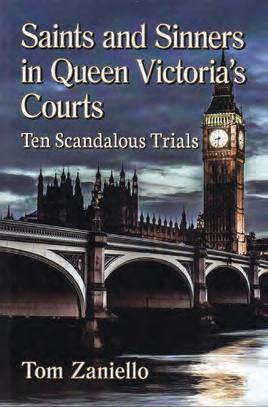
15 minute read
Pandemic May Change DC Criminal Justice A Few Important Lessons Gleaned from the



capitol streets
PANDEMIC MAY CHANGE DC CRIMINAL JUSTICE
When the DC Superior Court resumed jury trials in April, such proceedings had not taken place for around a year. In that time, the city’s criminal justice system continued operating: the Metropolitan Police Department (MPD) arrested or cited people; if prosecutors brought charges, defendants were either detained or, more often, released under varying levels of supervision awaiting case resolution. Some defendants accepted pleas while others awaited trials, either before a judge or jury.
As the criminal court slowly begins opening up, stakeholders re ect on what the justice system could look like going forward. The system adapted throughout the pandemic to the public health emergency. Will any of these changes stretch beyond the pandemic?
In the last installment of its series on DC criminal justice during the Covid-19 pandemic, Capital Community News explores three examples of the justice system adapting to Covid-19— virtual court, pretrial supervision, and misdemeanor prosecution—and conversations about whether and if changes should last into the future.

Virtual Court
DC Courts went virtual last spring. As in courtrooms across the country, for the majority of matters, DC court proceedings have been remote, facilitated through the video-conference application WebEx beginning in March. The courtroom hearing arraignments, presentments, bench warrant return and extradition hearings began as partially remote and has remained that way since, though by the end of March all other matters were entirely remote until June, according to a Court spokesperson. Since, the Court has gradually begun introducing more remote, partially remote, and in person opportunities. Now, for instance, the Court is holding both partially remote non-jury and jury trials and has begun remote nondetained misdemeanor arraignments.
Preliminary hearings became partially remote during the summer, with defendants being brought in from DC Jail, according to the Superior Court’s Criminal Division Presiding Judge Juliet McKenna. This decision was, in part, because “it is important, I think, from the defendant’s perspective to actually be able to have their day in court and at least physically appear before a judge,” especially with detention decisions, said McKenna in an interview last December.
The Court opened remote hearing sites to increase access for people who do not have computers or internet access.
For WebEx proceedings, the Court suggests that attendees dress like they would for Court, sit in a welllit room, and choose a non-distracting location.
McKenna felt that WebEx for hearings, overall, has “been working incredibly well.”
“We have not had issues with connectivity or the ability for individuals to see and hear,” said McKenna. There was a “learning curve in the beginning,” she explained.
Looking forward, she suggested virtual proceedings might not be left entirely behind. The Court has tried to “hold onto some of the things that maybe lead us to say we should have always done things this way,” McKenna said.
“I think we can all recognize that sometimes coming to court for a status hearing or to have your case be dismissed because you completed your community service obligation, that involves the cost of public transportation, it may require somebody to take an entire day o from work, get childcare to wait around for their case to be called,” said McKenna. If parties requested certain proceedings to be remote, “we would certainly be open to that even once the pandemic is over.”
However, McKenna noted that there are “fundamental constitutional values,” and that given “the weight of some decisions”—detention or determination of guilt, for instance—it is insu cient to o er certain proceedings “strictly via video or remotely.”
Some attorneys noted to CCN that given the circumstances, the virtual WebEx hearings were working well, even expressing support for continuing virtual proceedings for certain hearings, though not for others.

A Few Important Lessons Gleaned from the Past Year
by Gavrielle Jacobovitz
In a statement, Laura Hankins, the general counsel for the Public Defenders’ Service for the District of Columbia (PDS) said the organization hopes that The Department of Corrections (DOC) and St. Elizabeths Hospital “will continue to make legal visits by video available, to augment, but not replace, in-person legal visits.”
“PDS is in favor of some court hearings by video but, particularly for clients who are detained, hospitalized, or incarcerated, PDS strongly believes that video court hearings should be held only at the request of the client,” Hankins wrote.
For scheduling matters and hearings where no issue is contested, said Attorney Jon Jeffress in October, virtual hearings should be fine. For matters where credibility decisions need to be made, “there’s no way that that process can take place as effectively as in person,” Jeffress added. Holding a criminal trial virtually is a “nonstarter” for him, and for “a lot of people” as well. “It just doesn’t afford the process the gravity it should have.”
As to whether there may or there should be conversations about virtual hearings going forward when feasible, Jeffress said: “Yes, definitely. … A lot of time was wasted under the old system”—travel to the courtroom, waiting for a case to be called. Using video conferencing for procedural matters like scheduling “really streamlines the process” and will “hopefully be here to stay.”
Attorney Julie Swaney wrote to CCN that she believes “that virtual hearings are not sufficient substitutes for in person substantive hearings such as preliminary hearings or motion hearings with witness testimony.” Off-site witness testimony creates “too many issues,” Swaney added, like concerns surrounding the use of prohibited materials, connectivity problems interrupting attorney questioning, and the ability of judges to evaluate witnesses.
Furthermore, added Swaney, virtual hearings complicate communication between attorneys and clients or co-counsel. Requesting breaks can “interrupt the flow and impact of testimony.” Additionally, judges may not hear objections immediately.
Attorney AJ Amissah agreed in November that while virtual hearings can be convenient and efficient, communication with clients remains a challenge, one that slows down the process.
The types of hearings Swaney believes should remain virtual or be an option for the defendant are scheduling status hearings and hearings for diversion. “These hearings shouldn’t require someone to take a full day off work to come to the courthouse when the hearing itself is usually only a few minutes long,” said Swaney. Attorney Lee Smith said in October his experiences with WebEx had been “great,” though he faced a small technical difficulty. While it isn’t preferable to being in person, it works fine given the circumstances, Smith further added.
“I think in certain contexts it absolutely makes sense to continue using technology where it makes sense,” Smith said, noting that certain hearings, like trials, will need to be in person. Others like probation review check-ins or scheduling “I think would make sense to be virtual.” Smith noted that there will still be considerations to work out, including having people sign a notice virtually.
Similarly, Attorney Henry Escoto believes WebEx hearings are going “quite well.” He noted that hearings seem to take a bit longer. “I think virtual hearings are probably going to be a staple in the long term,” Escoto predicted in January.
The Court has worked to “ensure that attorneys are able to have confidential communication with their clients during the course of the hearing,” said McKenna in December.
Pretrial Supervision
The large majority of defendants in DC are not detained pretrial in DC Jail, but released under supervision of the Pretrial Supervision Agency of DC (PSA), an independent federal agency.
In PSA’s fiscal year 2020, around 15,000 defendants were released under its supervision. A defendant can be released either on their own personal recognizance or under PSA supervision. Founded in 1967, the agency uses a risk assessment process, determining how likely a defendant is to make court appearances, taking into account information like charges and criminal history to decide upon defendant release conditions, which it recommends to the Court.
Release pretrial comes in different levels of intensity, from no supervision at all, to General Supervision, to High Intensity Supervision (HISP) for defendants deemed “high safety or appearance risks.” HISP can include drug testing, weekly contact, and monitoring. The agency also offers special supervision addressing substance use and mental health disorders.
The pandemic created challenges by limiting in person interaction. Due to court delays during the public health emergency, people are staying under pretrial supervision for longer and defendants are not exiting at the rate others are entering, or at the previous average that determined the agency’s current resources, explained PSA Director Leslie Cooper.
“There are direct resource implications for us. We are working very hard to figure out how to best respond to those challenges,” said Cooper. “A key piece for us is really figuring out how to best allocate our somewhat limited resources.”
For people at a higher risk for rearrest or not appearing at court PSA would do more frequent checkins—even if just by telephone. For defendants at lower risk for such violations, it would maintain contact but maybe not at the same frequency as for others, Cooper said. PSA used both in person and virtual phone contact to supervise defendants.
Even with these changes, the agency had nearly identical markers in their released reports in 2019 and 2020. Its arrest-free rate rose from 87% to 88%. Its percentage of defendants who made all scheduled court appearances rose from 88% to 91%. Its percentage of defendants who for their entire pretrial period remained under its supervision decreased just two percent from 87% to 85%.
Regarding the re-arrest rate, “we really didn’t expect it to be that way,” said Cooper.
Throughout the adaptations, PSA has been looking forward. According to Cooper, the agency produces a weekly internal report that looks at trends PSA is experiencing during the pandemic period, which it uses “as a guidepost for figuring out whether we need to make procedural changes—do we need to bring different groups of people in, do we need to change supervision for specific groups of people based on what we’re seeing in our trends.”
“We are in this new virtual world so we’re really taking this opportunity to be very thoughtful in terms of looking at the data we have available to us and using it to really guide our way forward both as we come out of the pandemic period and beyond,” said Cooper.
During the pandemic, defendants have had the opportunity to file emergency motions for release due to Covid-19 public health concerns. As CCN previously reported, between March 15 and Dec. 5, 2020, DC Superior Court received 1,365 bond review motions for 1,033 individual defendants held for felonies and misdemeanors, almost all of which included some pandemic-related basis for relief, according to Judge McKenna. Judges granted 33 percent of the motions during that time.
“PDS believes that the major lesson for the District’s criminal justice system during the Covid-19 pandemic is that law enforcement’s extensive use of custodial arrests and pretrial detention is not necessary for public safety and is in fact harmful to individuals and
communities,” said Hankins, adding the organization would like to see the continued expanded use of field arrests, citation release, and pretrial release.
“I hope one thing that comes out of this is that we realize ... we really didn’t need to be incarcerating all the people we were incarcerating anyway, that it really wasn’t necessary to be locking as many people up as we were,” said Jeffress.
Misdemeanor Prosecution
The pandemic has delayed proceedings across the Superior Court’s docket. For people who were not detained pretrial facing misdemeanor charges and low level offenses, proceedings were on pause for over a year.
On May 10, 2021, citation arraignment and initial status hearings began remotely for non-detained misdemeanor cases. Beginning in mid-July, courtrooms for such proceedings will be partially remote. Per the order announcing the move, “thousands of misdemeanor cases are currently pending.”
What should the transformation of misdemeanor court during the pandemic teach us about the future of misdemeanor prosecution? This was debated in two Washington Post op-eds this spring.
In March, a year after DC misdemeanor court “closed,” Georgetown University Law Professors Vida Johnson, Abbe Smith, and John Copacino implored the city to “keep it that way.”
Misdemeanor prosecutions, the attorneys wrote in a March 4 Opinion piece in the Washington Post, “are unnecessary and do more harm than good.”
During the pandemic, almost nobody was detained in DC Jail for misdemeanor charges and prosecutors and judges were “seeking to not prosecute or cage petty offenders.”
“When the pandemic threat ends, this policy should not,” wrote the authors, who direct the Criminal Defense & Prisoner Advocacy Clinic and Criminal Justice Clinic at



Georgetown. “The U.S. attorney’s office should stop criminally prosecuting nonviolent misdemeanors.”
In DC, most people charged with misdemeanors are not held in jail pretrial. “Just the fact that the wheels are still in motion, everyone’s living their lives, and we’re not prosecuting people for misdemeanors, and the sky hasn’t fallen, shows how unimportant prosecuting poor people for misdemeanors is,” said Johnson in an interview last winter.
Nonviolent misdemeanors–drug possession, shoplifting, destruction of property, unlawful entry–are “[b]y and large... crimes of poverty,” from indicating drug use and dependency, to being “crimes of subsistence,” the attorneys argued.
Furthermore, they cited data indicating an “overwhelming number” of DC misdemeanor prosecutions are of poor people and, disproportionately, Black and Brown people. There are severe consequences for facing misdemeanor charges, including loss of housing and other economic effects. While having little impact on public safety, they argue, “petty-crime prosecutions” engender resentment and fear and are costly for taxpayers.
In April, Acting US Attorney for DC in the United States Attorney’s Office for DC (USAO-DC) Channing Phillips argued in an op-ed that this recommendation was “misguided.” It neglects the impact of crime and that prosecution and accountability is favored by many victims of crime, wrote Phillips. These offenses can make residents and visitors feel less safe, he added.
While he conceded that many of the aforementioned crimes were crimes of poverty and “symptoms of larger systemic issues,” he argued that the “solution” was not “to ignore or give a pass on the behavior.”
“Instead, we should try to address the conduct that led the person to offend in the first instance,” wrote Phillips, pointing to his office’s “rehabilitative-focused alternatives to traditional prosecution.”
Phillips cited diversion as an alternative to criminal convictions, for instance offering defendants drug and mental health treatment through the DC Superior Court Mental Health Community Court and the Superior Court Drug Intervention Program. Furthermore, some defendants can complete certain requirements for dismissal of their case. According to Phillips, the USAO-DC expanded diversion to first-time defendants charged with some felonies. He also revealed that this year the office is “working to start restorative justice programs that allow victims and defendants to speak openly about crime and its effects.”
In a tweet in response to Phillips’ article, Johnson wrote: “In responding to our op-ed the DC USAO didn’t mention race. He talks about discretion & victim input, phenomena that reinforce racism. He acknowledges that misdos are crimes of poverty, but offers nothing to address that.”
Misdemeanor court “pulls people into the system in ways that it’s really hard to get out,” said Director of DC Justice Lab Patrice Sulton. She disagreed with the USAO-DC op-ed that rehabilitation had to be through the criminal legal system. “To make people do quote on quote rehabilitation under the threat of being put in a cage is not nearly as effective as just investing in communities in the first place so that they don’t find themselves violating the statutes,” contended Sulton.
Last year, in an interview in November, the USAO-DC’s Chief of the Superior Court Division John Hill said that his office has “long been very open to alternative ways of handling [misdemeanors] consistent with the needs of the case, history of the defendant, the wishes of the victim, etc.” and that they are looking to expand that.
This year, Hill said, USAO-DC will be working to “enable more misdemeanor cases in particular and some lower-level non-violent felony cases” to be potentially “eligible for diversion or for more types of diversion, but [with] the
real goal of trying to wherever possible and whenever it might be bene cial to divert someone from the criminal justice system with the hopes that the opportunity will set them on the right path going forward.”
“Covid redoubled our determination in this regard and that’s something that we’re going to have to continue to do and something we want to continue doing going forward,” Hill added.
Facing the Future
The partners of the Criminal Justice Coordinating Committee, which PSA is a part of, are focused on “what can we learn from what’s happening and what can we do better and improve to help everybody out,” said PSA Chief of Sta Victor Valentine Davis in November.
It’s looking to see “if we can codify some of those [improvements made] and then make everything better going forward even post Covid.”
These areas explored were just three examples of changes made during the pandemic and what they might mean for the future of justice in the city. While stakeholders might disagree on what DC criminal justice should look like going forward, it seems the system might not look exactly as it did in the past, pre-pandemic.
DC Witness, a non-pro t dedicated to creating transparency in the District’s justice system, is providing data on criminal cases for this project. For more information, visit www.dcwitness.org.

This article was supported by a grant from Spotlight DC: Capitol City Fund for Investigative Journalism. Spotlight DC encourages the submission for proposals by independent journalists. For more information, visit www.spotlightdc.org.
Gavrielle Jacobovitz is a graduate of Columbia University and a freelance reporter at Capital Community News. She has previously interned with HuffPost Politics and NBC Owned TV Stations. ◆

Now Available ONLINE @ in the Whole Foods Section
The best corn you’ve ever had


Available at










